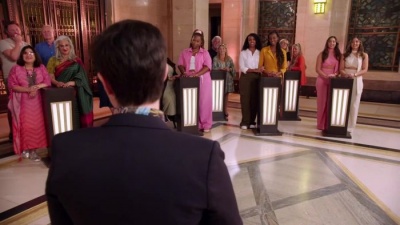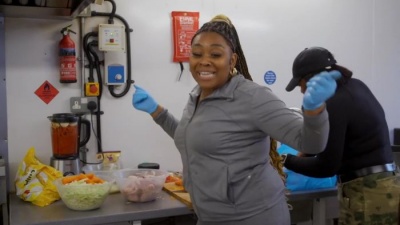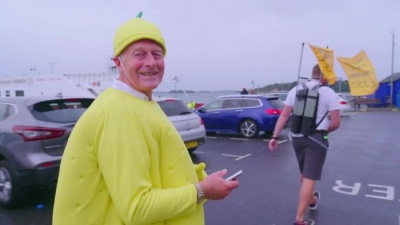Double the Money
Contents[hide] |
Host
Broadcast
South Shore for Channel 4, 9 May to 7 June 2024 (6 episodes in 1 series)
Synopsis
Sue Perkins asks contestants to take a small amount of money, and double it, in just a short time. Anyone who can achieve that feat qualifies for the next stage, and whoever makes the most profit in the final scoops a £20,000 prize.
At the start of the series, each couple is given £250 of the producers' cash. The challenge: double that dosh in just 36 hours. As the stakes go up, so does the time allowed, a bit like this:
| Episode | Stake | Target | Time |
|---|---|---|---|
| 1 | £250 | £500 | 36 hours |
| 2 | £500 | £1000 | 3 days |
| 3 | £1000 | £2000 | 1 week |
| 4 | £2000 | £4000 | 2 weeks |
| 5 | £4000 | £8000 | 3 weeks |
| 6 | £10,000 | £20,000 | 4 weeks |
The show is played by couples, and they've had time to think about what they're going to do, and make some bookings. All the businesses must be legal (obviously!), and a team can't repeat a precise idea in a later week. Teams are allowed to play to their strengths, and make similar businesses, so we get "the influencer couple" and "the foodie couple" and "the couple who work hard at manual tasks".
Thirteen teams is a lot to follow, and some successful couples are only featured in short snippets. The edit is drawn to teams on the bubble, where there's a serious risk of them not turning the required profit. And it's drawn to teams of dramatic people, fractious couples, or those who are doing something very camera-worthy. Clearing gardens? Dull. A club night that's going to come within £5 of the target? Interesting.
As the rounds progress, we lose teams that had a bad plan, or miscalculated their margins, or were just plain unlucky with the weather. (Series 1 was filmed between June and September 2023, and many of the early weekends were complete washouts.)
The producers wanted to make a show that was about business plans, and also about personal stories. As the rounds progress, we're drawn in by the people, the stories and the little dramas they play out.
We work out who wears the pants in this relationship, who has a meeting of equal minds. Who has the ideas, who gets their hands dirty. Who thinks they can swan through life with little effort, and who might only be here to boost their social media even higher? Can this couple revive their mojito delivery service? Can that couple sell enough lemonade to cars stuck in a traffic jam because the road's flooded?
There are vague elements of The Apprentice here, mostly that profit is the sole metric of success. (And the teams get to keep any profit, even if they don't qualify for the next round.) There are more elements of The 1% Club, the task gets more difficult each week and the same contestants crop up with increasing regularity.
Double the Money attracted ratings around the slot average, and professional reviewers loved it.
Trivia
Most episodes went out on Friday evenings at 8pm. The first episode was a special Thursday start, hoping to pick up viewers disappointed that Dragons' Den had been replaced by the Eurovision Song Contest; episode two followed the next evening. The final episode was also displaced to Thursday, as Channel 4 showed men's football on Friday.






